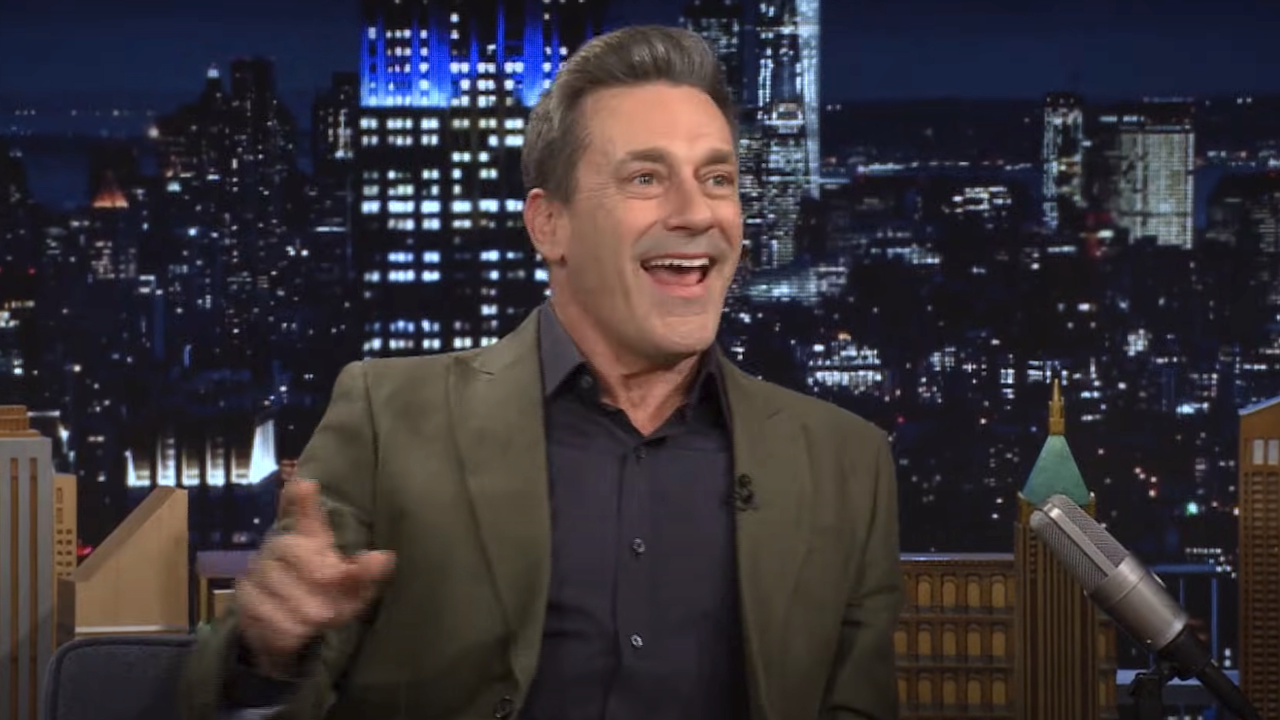When I first heard that Godzilla was getting an American reboot, my stomach rumbled with a dull sense of dread. The old Japanese Godzilla movies played a major part in my childhood. And after the misfire that was Roland Emmerich's goofy 1998 Godzilla, I wasn't especially hopeful Hollywood understood what made this monster so magnificent. But thankfully, director Gareth Edwards does. His Godzilla is the one America owes the world. It's expansive, epic, and spectacular.
The screenplay by Dave Callaham and Max Borenstein follows the teeny humans scurrying at the feet of this massive, ancient alpha predator who has risen from the darkest depths of the Earth. Bryan Cranston stars as Joe Brody, a scientist whose work at a Japanese nuclear plant clues him into a dangerous trend. It's not earthquakes that are shivering the ground beneath their feet. Yet he's repeatedly ignored, considered a broken, kooky old man by everyone -- even his soldier son, Ford (Aaron Taylor-Johnson). But when a horrendous monster cracks free from its towering cocoon, Joe’s research proves pivotal in making sense of a world where ancient beasts make mankind into metaphorical insects.
Gareth Edwards owes Roland Emmerich a great debt. Not only did Emmerich's Godzilla provide some lessons that Edwards clearly took to heart (avoid New York, hokey dialogue and campy humor), but also he directed one of Godzilla's clearest influences. This rebooted Godzilla owes a lot of its structure to Emmerich's outstanding Independence Day. Like that action-adventure, Godzilla globetrots, following not just the monsters' paths of destruction but also the impact it is having on mankind. We leap from the Philippines to Japan, Hawaii to the West Coast of the United States. And all along the way, Edwards keeps us in contact with the Ford family, the research team led by Ken Watanabe and Sally Hawkins, the military troops led by David Strathairn, and occasionally touches down on little moments with background extras just to reinforce the thread of this being a battle that affects the entire human race.
It's a difficult thing to shift a movie's focus to so many different threads, but Edwards manages to do so without Godzilla ever feeling scattered. The titular monster is the center of this web of stories, and Edwards never lets us forget how they all connect. In the many monster fight scenes, he is careful to reveal Godzilla from human perspectives, as opposed to the old school, profile wide shot of two gargantuan beasts squaring off. Instead, we get shots from the ground showing Godzilla's massive foot, which could crush an airplane. Glimpses of him are snared through the windows of skyscrapers. And in one of the film's most thrilling sequences, we get a look at Godzilla's face through the perspective of the paratroopers launching down for a harrowing rescue mission.
These clever camera angles keep us rooted in the peril of the humans onscreen while always emphasizing the astonishing scale of these beasts. Adding to the film's incredible sense of tension, Edwards also carefully teases out the reveal of Godzilla. The spines of his back breach the ocean's surface in one of the film's nods to Jaws (along with its attention to including tender, character-building moments and having a hero named Brody). Then his foot. His torso. Finally his face.
The design of the monsters is at once familiar and fresh. The visual effects in the film are flat-out awesome, but the creation of Godzilla is literally breathtaking. I actually squealed with unadulterated delight as the movie monster I remember so fondly from my youth roared to life before me, bigger, brawnier and more badass than I'd ever seen him before. I felt like a kid again, and was radiant with excitement.
The visual effects are stupendous. But Edwards was also smart enough to select a really impeccable cast to breathe life into the film's emotional core. Everyone in the ensemble from Bryan Cranston to Juliette Binoche, Ken Watanabe, Sally Hawkins, David Strathairn, Elizabeth Olsen and Aaron Taylor-Johnson, breathe an incredible authenticity into the narrative and its characters. There are no hammy stereotypes here. Instead, this cast deftly creates people who ground this larger-than-life story in a way that demands your attention, and will rattle you to your core.
Godzilla is everything you want out of a summer movie. It's got a world and story so big that it demands to be seen on the biggest screen. It is anchored by performers who treat the narrative and genre with incredible respect. It has some of the best visual effects we're likely to see this year, and it is electrifyingly thrilling. All in all, Godzilla is the best disaster movie since Independence Day.
Staff writer at CinemaBlend.












